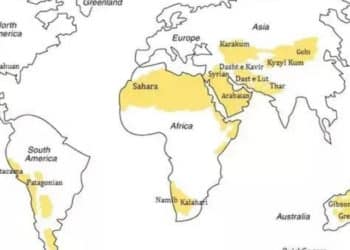National Commission for protection of child rights, NCPCR’s Bal swaraj – an online tracking portal recorded details of 9346 children who were orphaned or abandoned or had lost one parent during the COVID-19 Pandemic since March 2020 and the reports show the data of children between 0 – 17 age group.
NCPCR even informed the Supreme court about the high risk of these children being trapped into trafficking & flesh trades. It has even received complaints of government authorities illegally sharing data to private entities and NGOs of the affected children.
“The commission has been receiving many complaints in the recent past, alleging that there are private individuals and organisations, who are involved in data collection of such children stating that they want to help the children and the families and also, these organisations/individuals are giving away these orphaned children to families in adoption without following the procedure given under the Juvenile Justice Act, 2015,” the affidavit issued by the NCPCR said.
“In response to these complaints, the commission took out an advisory dated 02.05.2021 to chief secretaries of all states/UTs informing about the growing problem of illegal adoption during the second surge of Covid-19 and advising to produce the children before the child welfare committees, so that necessary action can be taken in the best interest of those children,” it added.
Through the letter issued by NCPCR dated on 27th may 2021, it stated the following recommendations to the state government and education authorities to take welfare measures for the students who have lost either of their parents in covid:
- In case of death of one or both parents of the child and/ or the earning member of the family and if the child is studying in private school, the expenditure on elementary education of such a child in the same school may be borne by the government under Section 12 (1) (c) of the RTE Act, 2009.
- For this, the child along with guardian/ any member of the family; and/or the school where the child is studying shall approach the child welfare committee (CWC) of the district. Based on proceedings before the CWC, the child may be included in the list of children already admitted in the school under Section 12 (1)(c) of the RTE Act, 2009. The school shall then follow the procedure to raise the demand for reimbursement of the expenditure as per respective state RTE rules.
Implementing these recommendations made in the enclosed documents and shall apply to all categories of schools entrusted with the responsibility under Section 12(1) of the RTE Act — aided, unaided private schools; specified category schools. Schools with minority institution status and all residential schools shall also follow the procedure and ensure that no such child is forced to leave the school in any manner against the child’s choice because of non-payment of fees.
- For classes above VIII (beyond RTE), the state government shall devise guidelines for the schools and/ or issue necessary directions and/or devise a policy for reimbursing the expenditure of education of these children. Reimbursing the expenditure of education of these children. ‘Samveda’ a tele counselling service for children during covid where they had talked to over 1100 children till date.
Out of 9346 children, 7464 of them have lost either parent and 1742 & 140 children are orphaned and abandoned, respectively. We can clearly observe that children from age group 8 – 13 are the most affected group. 25 states & 5 UTs have uploaded the data till now, Uttar Pradesh standing at the top of the list with the data of 2110 affected children, followed by Bihar with 1327 children. Uploading of data by the states is an ongoing process.
However, the bench has provided the deadline of 5th June 2021 to the states to upload the data on the portal.

